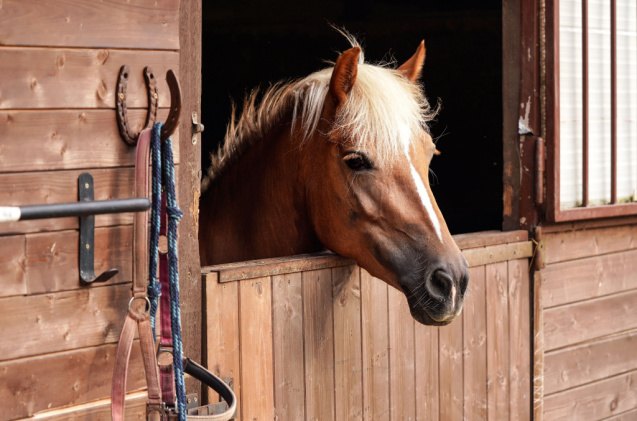Horse Housing Explained - What Are the Best Options for Your Horse

Before you get a horse, you need to make sure that you’ve prepared everything they will need. There’s a lot to consider, but one of the first things is where your horse will be housed once they get to you. Horses are powerful and large, sure, but even they will need protection from the elements to thrive. But what exactly is ideal for horses? What type of shelter is needed, and what constitutes housing that’s too small or too large? Let’s answer these, and other questions that are connected with horse housing.
What Kind of Shelter Do Horses Need?
Of course, there are numerous factors that need to be taken into account when you are planning horse housing. Things like the type of horse, their activity levels, daily chores, the environment and climate you live in, and the locality, are all important to consider. First and foremost, however, it is worth mentioning that not all horse owners choose to build housing on their estates. After all, some do not have that possibility. These owners might opt for horse boarding. These can be established specialty stables or local farms that offer accommodation for horses. This, however, is an added expense that simply doesn’t make horse ownership viable for some people.
If you have the ability to build your own horse accommodation, here is what you need to know. Horses need protection from the elements, for the most part. These include extreme cold and hot temperatures, snow, hail, storms, wind, and so on. No one would like to be exposed to the elements, horses included. These animals also need a safe and dry place to eat. Also important to consider is the environment you live in. If you are in a rural locality with plenty of nature around and free space, horse housing might be needed as protection from predators that could roam about at night. Then again, if you live in a more urbanized locality, you need to consider all the free land you have at your disposal, as well as all the needed permits for the construction of a horse shelter.
Horses that are a part of special shows, competitions, or races will likely require more elaborate housing of the highest quality, with plenty of added facilities and equipment to keep them always in their prime. However, if you own a strong draft horse who helps you complete various tasks around the property, you might opt for a classic stable with lots of room and suitable protection from the elements. Most horses, however, can do well with simple housing, with standard dimensions, and without any bells and whistles.
For example, the dimensions of a stall for a large draft horse are around 16’ by 16’, while the stall for a riding horse is 12’ by 12’. Smaller horses will require roughly 10’ by 10’ for their stall. Remember that the stall is just one part of the barn: you will have to provide areas for storing feed, tools, equipment, and entry and exit ways. A proper barn will have to be well-insulated, with plenty of windows for natural lighting and ventilation, and protected from all sides.
Of course, there is also the option of outdoor housing. This is great for more temperate climates, large pastures, enclosed properties, and seasons of the year when the weather is nicer. They differ from the classic barn: they are usually three-sided and can be simpler or more elaborate. Outdoor barns are also less expensive for construction and provide easier access for cleaning.
Either way, a horse must have adequate protection. It’s up to you to make the choice depending on the type of horse you own. Gone are the days when horses roamed in herds on open pastures. Today, they are best kept safe under a sturdy roof and in a cozy stall. Just remember, even though their stable or barn might be comfy and spacious, they still require plenty of time outside of it. Be sure to regularly offer your horse some quality exercise and relaxation on open pastures and in nature. After all, everybody needs some fresh air and sunlight – ideally on a daily basis!

A proud mama to seven dogs and ten cats, Angela spends her days writing for her fellow pet parents and pampering her furballs, all of whom are rescues. When she's not gushing over her adorable cats or playing with her dogs, she can be found curled up with a good fantasy book.
More by Angela Vuckovic






















